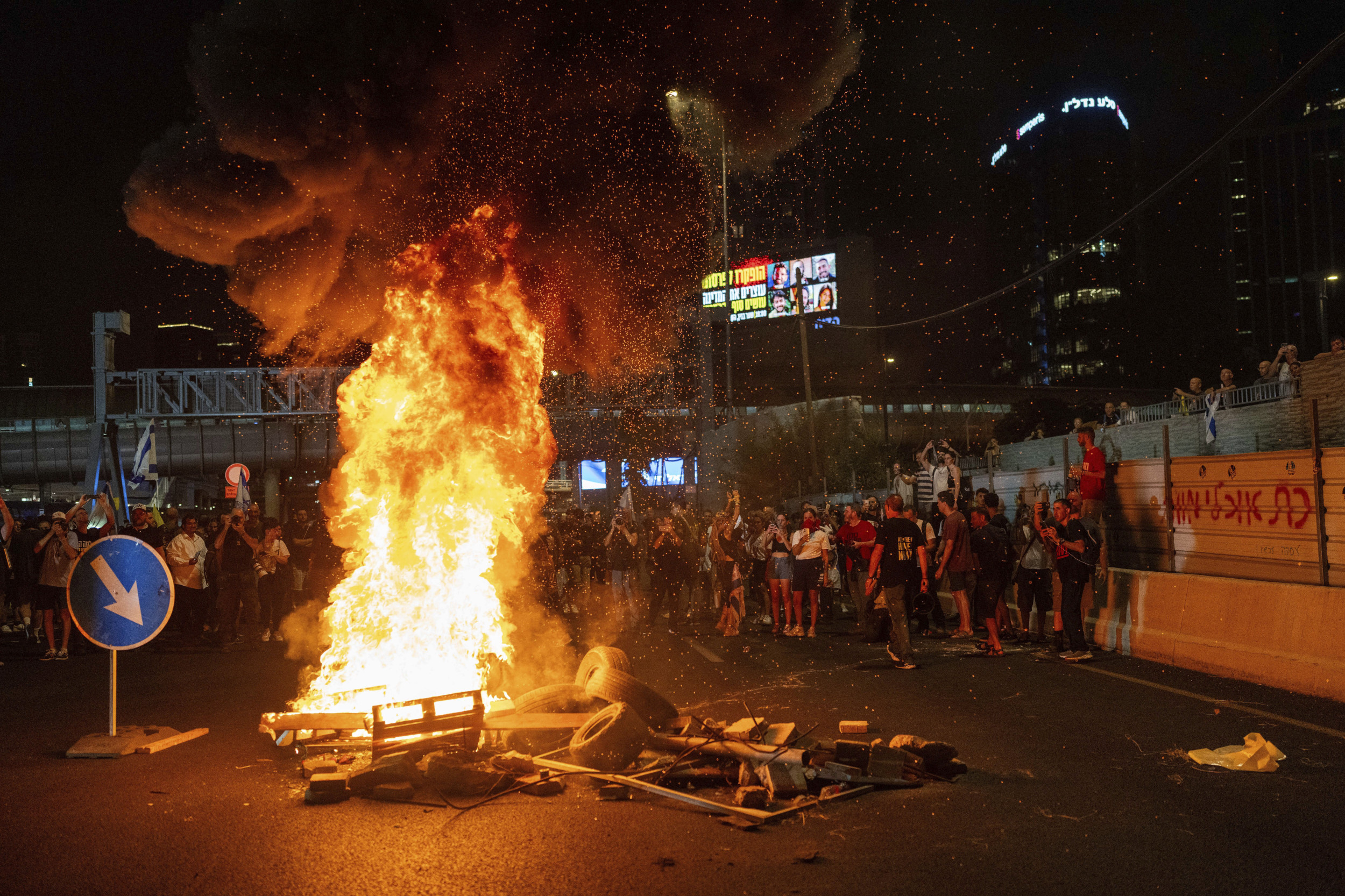In a strong display of frustration, many Israelis are participating in a general strike, a response to the government’s inability to secure the release of hostages held in Gaza.
This strike has disrupted daily life across the nation, including operations at the main international airport.
Recent developments saw the Israeli military discovering six hostages deceased in Gaza, leading to significant outcry from families who feel let down by Prime Minister Benjamin Netanyahu.
On Sunday evening, tens of thousands of people took to the streets to express their sorrow and anger following the grim news.

Ohad Zwigenberg/AP
The Histadrut, Israel’s largest trade union, urged a general strike on Monday, marking the first such action since the war began. The goal is to disrupt key economic sectors such as banking, healthcare, and transport.
However, the strike has seen patchy participation, reflecting the country’s political divides.
Before the tragic announcements, officials believed there were still 108 hostages in Gaza, with about a third presumed dead. Over a week-long ceasefire in November, more than 100 hostages were released in return for Palestinian prisoners.
Israeli forces have successfully rescued eight hostages, including Qaid Farhan Alkadi, 52, just last week.
The Forum for Hostages and Missing Families is now pushing for immediate actions to bring the remaining hostages home, while others back Netanyahu’s military pressure on Hamas. This strategy aims to either compel the militants to negotiate or lead to further successful rescues while aiming for the group’s complete dismantling.
Netanyahu has committed to achieving “total victory” over Hamas, asserting that the group is at fault for stalled negotiations this year.
The strike on Monday caused flight delays at Ben-Gurion Airport, with outgoing flights paused between 8:00 and 10 a.m. although incoming flights operated on schedule.
Many businesses, including banks and large shopping centers, were closed, and public transport faced limitations. Some schools reduced their hours, particularly in central Israel, while public daycare services were canceled.
Notably, several municipalities, including Jerusalem, opted out of the strike.
Reports indicate that the state has sought to legally terminate the strike, claiming it is politically motivated.
Sunday’s protests were among the largest since the onset of the conflict, with estimates ranging from 200,000 to 400,000 participants nationwide, particularly concentrated in Tel Aviv.
This article incorporates reporting from The Associated Press.
